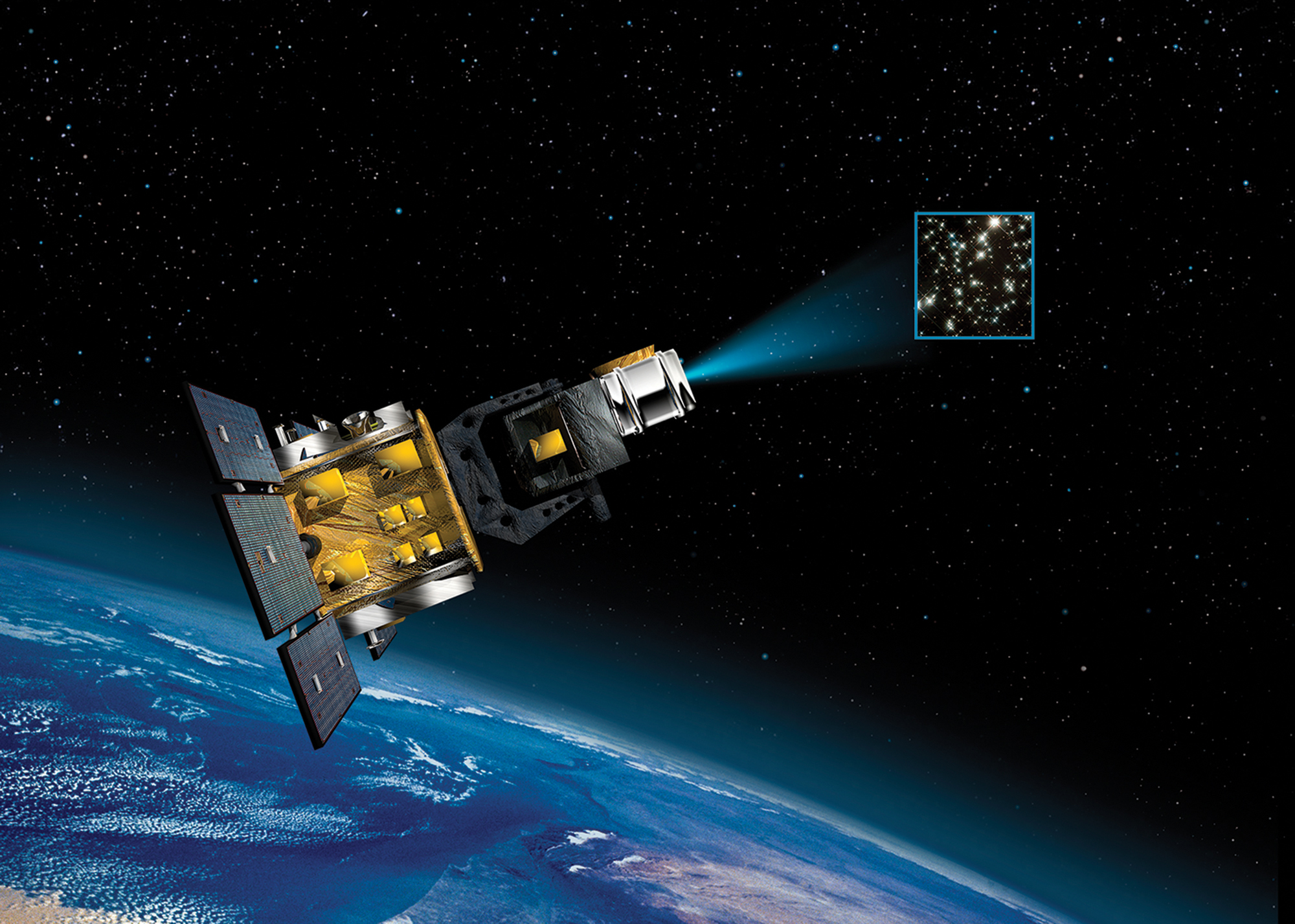Smallsats Could Help US Mitigate Losses in Space Conflict, Experts SaySpace.com
By Phillip Swarts, SpaceNews | March 12, 2017 09:00am ET
 An artist's illustration of a Space Based Space Surveillance satellite for the U.S. military. Credit: Boeing
An artist's illustration of a Space Based Space Surveillance satellite for the U.S. military. Credit: BoeingWASHINGTON — The United States must be prepared to lose satellites in the event of a conflict, but smallsats and dispersed systems can help ensure key capabilities remain operational.
"Space dominance, if it ever existed, is not in our future," said Dale Hayden, senior researcher at the Air Force's Air University, noting the proliferation of anti-satellite technology worldwide.
"In a conflict, it will be impossible to defend of all the space assets in totality," Hayden said, speaking at the Satellite 2017 conference here. "Losses must be expected. It will be important to fight through those losses, just as we must in other domains. Small satellites and disaggregation make this a reality."
One of the ways to deter an attack is to increase how much that attack might cost an adversary. Military officers hope that spreading systems across multiple satellites makes it economically and logistically infeasible for adversaries to attack U.S. capabilities. Rather than having to shoot down one satellite to destroy a capability, an enemy would now have to shoot down dozens or hundreds of satellites.
The Air Force's Operationally Responsive Space (ORS) Office at Kirtland Air Force Base, New Mexico, is testing out ways to quickly and cheaply build and deploy satellites.
Not only would it drive down the cost of space programs to U.S. taxpayers, and allow the military to update constellations more frequently, it would also allow the Defense Department to quickly replace any satellites that might be destroyed in an attack, said Air Force Col. Shahnaz Punjani, ORS director.
"We're looking at ways to provide minimum threshold capability in a timeline of need, and the small satellites and this disaggregated architecture is the smartest way to go, at least from an ORS position," she said.
The office is preparing to launch its next satellite, ORS-5, in July for a space situational awareness mission.
"The launch, ground, and space system itself [cost] less than $100 million in a three-year program," Punjani said.
ORS-6 is set to launch in November carrying a weather-detection payload. It will also test out the Modular Open Systems Architecture Space Vehicle, or MSV, which ORS hopes will serve as a standardized bus that can quickly be loaded with urgent systems.
"Once space qualified, the MSV architecture will enable the ORS Office to rapidly develop and integrate space vehicles to meet Joint Force commanders' urgent needs with payloads utilizing a standard interface," a statement from the office said.
Shahnaz said she doesn't see many limits for the use of smallsats the military, noting that critical capabilities such as nuclear command and control can be placed on a constellation of many small spacecraft.
"You can make smallsats highly robust," the colonel said. "[The military] will not accept nuclear strategic communication that doesn't have high reliability, high mission assurance ….You can take a small satellite — what we use at ORS mostly is Class C payloads that are single string, no redundancies — and you can make them very expensive and still make them able to provide that strategic element. I would say smallsats are very flexible in that regards."
Peter Wegner, the chief technology officer for Spaceflight Industries at BlackSky Global, said he could foresee a future where constellations of smallsats in low Earth orbit start to replace larger satellites in geosynchronous orbit.
"The only reason you go to GEO is for persistence," he said, referring to the geostationary belt some 36,000 kilometers above the equator . "If you can build a satellite at about a twentieth of the cost in low Earth orbit, it actually gets to be cheaper to do persistence from LEO than to do it from GEO."
"I call it the LEO eats GEO future," he continued. "I think it's possible that essentially all of the missions that we think about doing in GEO today will get disrupted by these networked constellations in LEO."
http://www.space.com/35970-military-smallsats-could-limit-space-conflict-losses.html